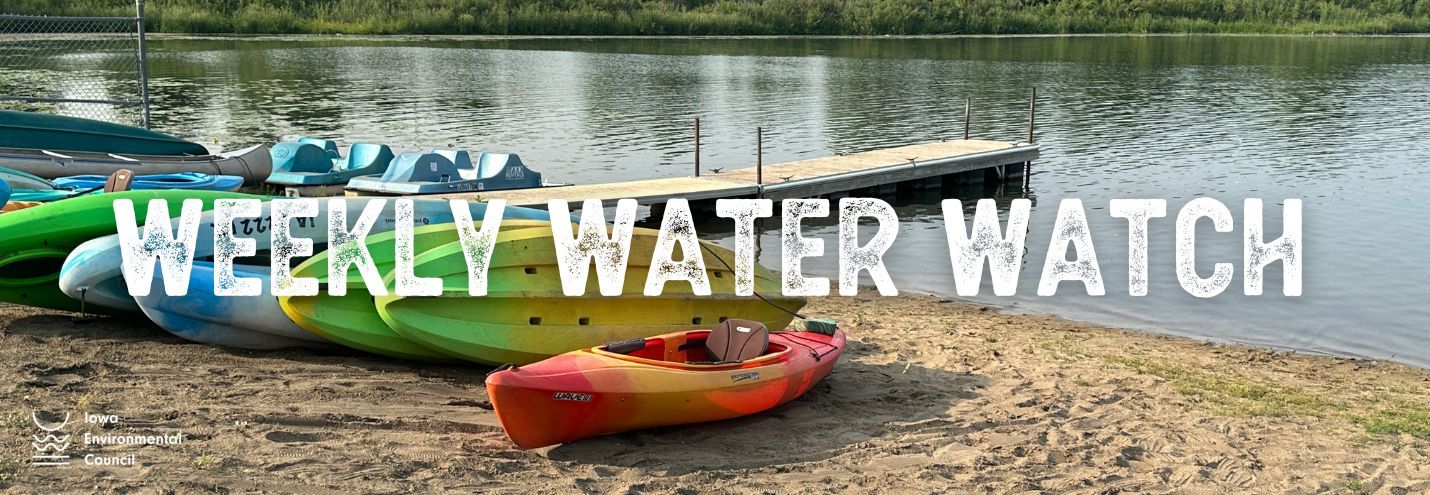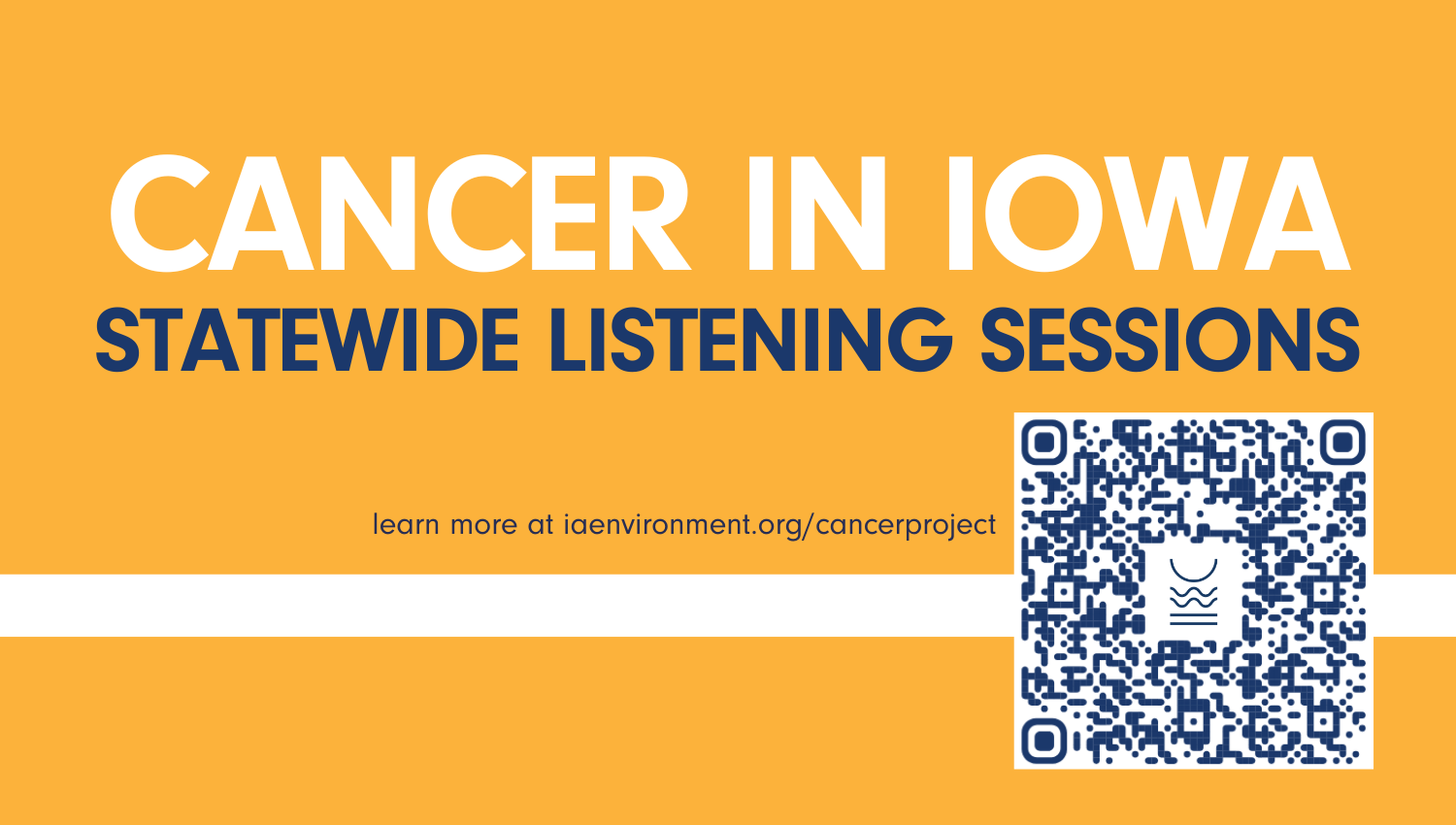|  | | 10 Beaches with an E. coli Advisory:
Backbone Beach (Dundee, Delaware County, IA)*
Beed’s Lake Beach (Hampton, Franklin County, IA)*
Denison Beach (Black Hawk Lake, Lake View, Sac County, IA)*
Lake Darling Beach (Brighton, Washington County, IA)*
Lake Manawa Beach (Council Bluffs, Pottawattamie County, IA)*
Lewis and Clark Beach (Blue Lake, Onawa, Monona County, IA)*
Lower Pine Lake Beach (Eldora, Hardin County, IA)*
Nine Eagles Beach (Davis City, Decatur County, IA)*
North Twin Lake West Beach (Rockwell City, Calhoun County, IA)*
Prairie Rose Beach (Harlan, Shelby County, IA)* 3 Beaches with a Microcystin Advisory
Green Valley Beach (Creston, Union County, IA)*
Lake Darling Beach (Brighton, Washington County, IA)*
McIntosh Woods Beach (Clear Lake, Ventura, Cerro Gordo County, IA)* 3 City and County Beaches exceed the state’s advisory threshold for E. coli.*
(City and County beaches do not report levels of algal toxins)
View the map on our website to see where. Note: Monitoring has been suspended at Lake Keomah due to renovation activities. George Wyth Park is closed due to flooding. *Data from the Iowa DNR State Park Beach Monitoring Program
**Data from the U.S. Army Corps of Engineers, Rock Island District |
|
|
| Central Iowa Source Water Resource Assessment Published |
|
|
| This week ushered in an important water assessment after a vigorous two-year review by 16 experts. The study provides an analysis of two rivers, the Des Moines and Raccoon Rivers, that provide drinking water for much of Central Iowa. The assessment also identifies key concerns for the watershed, including industrial and agricultural pollutants. The Polk County Board of Supervisors reviewed the Central Iowa Source Water Resource Assessment (CISWRA) report and took public comments at its July 1 meeting. Michael Schmidt, IEC General Counsel, spoke on the importance of the CISWRA findings and recommendations. "While there are many individuals voluntarily undertaking conservation practices, including members of Iowa Farmers Union and others, we need larger-scale changes to protect our source water supplies," Schmidt said at the Polk County Board of Supervisors meeting. "The nitrate levels in the Raccoon, Des Moines, Cedar, and Iowa Rivers continue to provide evidence that we need to involve everyone upstream. We can’t continue to rely on treating the problem downstream, especially because the problems aren’t limited to one watershed." |
| |
|
| |  | | Iowa adopted a state water plan in 1985, but has not developed a comprehensive plan since then. The term “water plan” refers to the state’s system of regulating the use of its surface and groundwater resources. A state water plan should address all aspects of the water cycle, including precipitation, soil moisture, stream flow, and flooding. We focus here on one important aspect of a plan, groundwater management. Properly constructed and administered, the plan should provide the best approach to ensuring adequate supplies for the variety of domestic, agricultural, industrial and recreational uses of water. Although it focuses on water quantity, it also affects water quality. Iowa has historically had little reason to worry about water quantity. Annual precipitation typically totals around 35 inches, much more than the Dakotas or Nebraska. Over much of the state, groundwater resources have also been capacious. The Jordan Aquifer, relied on heavily across the state, was once called “practically inexhaustible.” Read the entire blog by IEC General Counsel Mike Schmidt and Richard M. and Anita Calkins Distinguished Professor of Law at Drake Law School Jerry Anderson on IEC's website. |
|
|
 | Swampbuster Webinar Recording On Monday, IEC General Counsel Michael Schmidt and Hardin County farmer John Gilbert presented on the impact of wetlands and the recent Swampbuster decision. This webinar included background on IEC's intervention into the Swampbuster case, where federal judge C.J. Williams of the Northern District of Iowa ruled in favor of sustainable agriculture groups and family farmers. Mike and John also detail the many benefits of wetlands and their importance in Iowa farms. If you joined us on the live Zoom presentation earlier this week, thank you! If you missed it (or you want to rewatch or share it), click here to watch the recording on our YouTube page. Swampbuster has protected wetlands, safeguarded clean water, protected communities from extreme flooding, and supported farmers for nearly four decades. If the plaintiffs were successful, Swampbuster could have been revoked entirely. Learn more about Swampbuster and wetlands protections on IEC's website. |
|
|
| | | |  | Cancer in Iowa Listening Sessions
Iowa has the second-highest cancer rates in the nation, and it is among only two states where cancer rates are increasing. We want to hear from you: Iowans who wish to learn more about cancer in our state, and Iowans who have been impacted by cancer. Register for a listening session near you. |
|
|
 | Drought, Deluge, and Drinking Water Webinar
Join us on July 15 as IEC and featured expert guests continue our four-part webinar series, Understanding Iowa's Changing Climate, focusing on climate resiliency and preparedness. This webinar will include information on the hydroclimate whiplash; from prolonged drought to severe floods to pollution impacts, Iowa communities face unique challenges to provide safe drinking water. |
|
|
| Hear from IEC's Water Program Director
Hello, Weekly Water Watch readers! Happy Fourth of July! IEC staff are taking this weekend to enjoy the outdoors. Be mindful of the 13 advisories this weekend at 12 different beaches before you make your weekend water plans. Week 1 of Weekly Water Watch, we had 4 advisories at 4 different beaches. As we see these advisories increase throughout the summer, we encourage our supporters to take pictures, notify the DNR or your county officials, and exercise caution. If you're observing foamy green algae, water with oily streaks, or strong odors, there could be harmful pollutants present. When in doubt, stay out! Have a wonderful weekend!
- Colleen Fowle |
|
|
| | | | Iowa Environmental Council
505 Fifth Ave., Suite 850
Des Moines, Iowa 50309-2317
515-244-1194 | iecmail@iaenvironment.org |
|
|
|
|
|